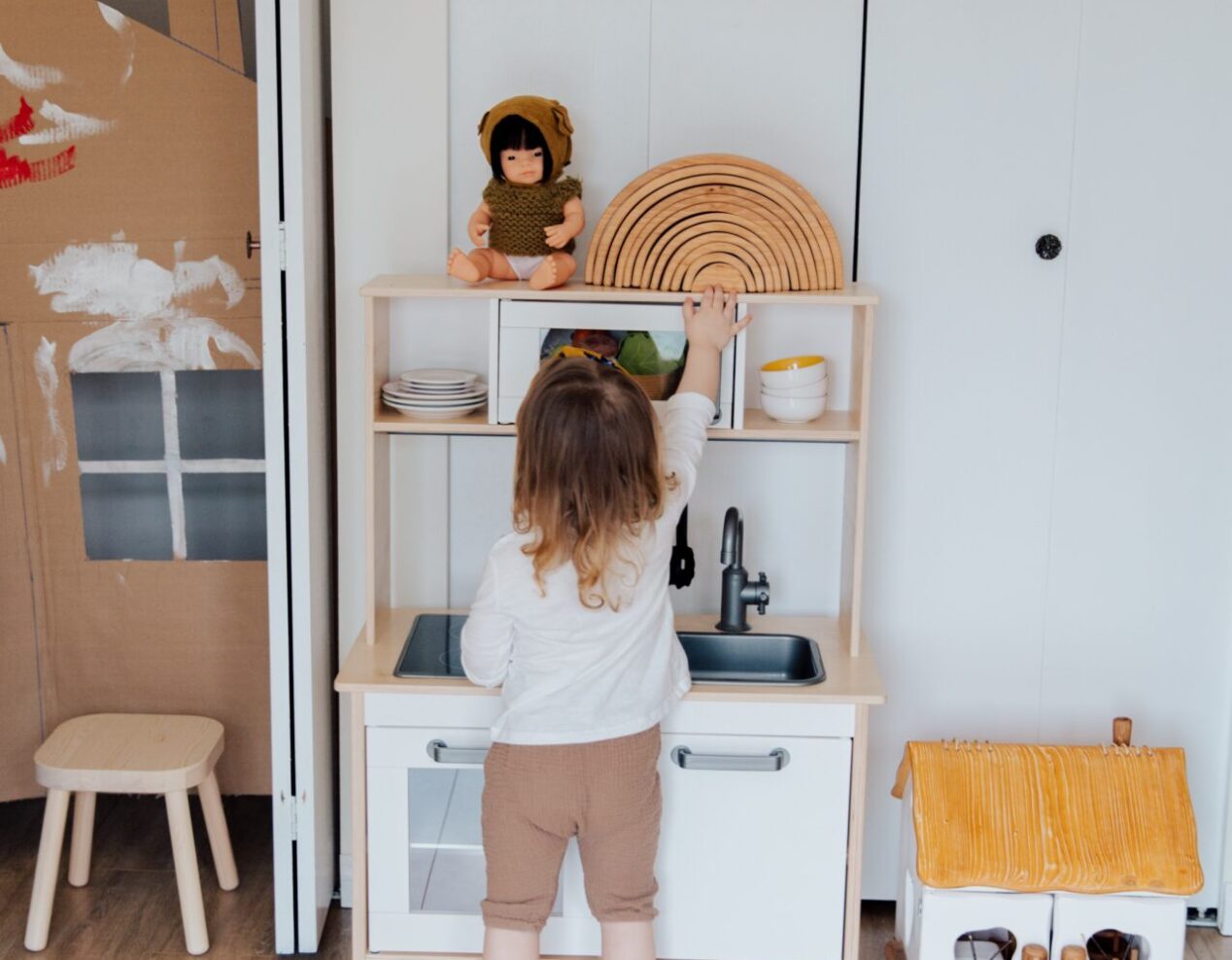The Howtotalk Method: A Game-Changer in Parent-Child Conversations

Parenting is a journey. And like all journeys, communication is key. Imagine a world where we talk with our children, rather than at them. This is the world the Howtotalk method aims to create. Here, we’ll dive into this approach and discover how it can reshape parent-child interactions for the better.
Understanding and Valuing Feelings
The heart of the Howtotalk approach lies in recognizing and affirming a child’s feelings. It’s about creating a safe space where kids feel their emotions matter.
Evidence-backed Insight: A comprehensive study in the Journal of Child Psychology and Psychiatry has shown that children, when their emotions are respected, tend to develop a stronger sense of self-worth and bounce back faster from emotional setbacks[^1^]. What does this mean for us? When our kids feel truly heard, it not only builds trust but also lays a foundation for lifelong, open conversations.
Teamwork in Problem-Solving
Rather than giving orders from the top, Howtotalk believes in coming together. Think of it as teaming up with your child to tackle challenges.
Evidence-backed Insight: Cooperative strategies, as highlighted by the Journal of Family Psychology, can do wonders. They help children feel more involved and develop essential problem-solving tools[^2^]. Plus, when kids play an active role in finding solutions, they’re more likely to stick to them.
Praise with Purpose
Instead of just saying “good job,” Howtotalk encourages parents to be more specific. Tell your child exactly what impressed you.
Evidence-backed Insight: The Journal of Experimental Child Psychology suggests that specific praise can fuel a child’s inner drive[^3^]. On the flip side, vague compliments might leave them wondering what they did right.
Steering Clear of Labels
Howtotalk advises against quick labels. It’s about understanding actions in their unique situations and engaging in meaningful conversations.
Evidence-backed Insight: Labeling, as discussed in the Journal of Social Issues, can unintentionally push children into stereotyped behaviors[^4^]. Let’s empower our children to be more than just a label.
Deep Listening and Reflection
True listening is an art. The Howtotalk method champions this art, focusing on fully absorbing what our children say and reflect on it.
Evidence-backed Insight: The Journal of Clinical Child Psychology reveals that genuine listening can lead to richer dialogues, greater trust, and smoother conflict resolutions[^5^]. When kids sense we’re wholly present in the conversation, it strengthens our bond.
Empowering Independence with a Growth Perspective
Guided by Carol Dweck’s insights on the ‘growth mindset,’ Howtotalk champions the idea of nurturing independent thinkers. Instead of rushing to their aid at every hurdle, it’s about letting children face challenges head-on, paving their way towards self-sufficiency, resilience, and a zest for discovery.
Evidence-backed Insight: Carol Dweck’s comprehensive studies shed light on the wonders of a growth mindset – the understanding that our talents can grow with effort and persistence[^6^]. Letting kids tackle challenges boosts their self-confidence and encourages them to think, explore, and trust their abilities, enriching their sense of self-worth.
The Nuance of Praise
While it’s tempting to celebrate every little win, Howtotalk suggests more thoughtful accolades. Move away from generic compliments, and hone in on what exactly makes their achievements special.
Evidence-backed Insight: Praise isn’t always a straight path to motivation. Research, inspired by Dweck’s work, points out that excessive or vague praises might stifle a child’s drive[^7^]. Detailed commendations help kids appreciate their own efforts, pushing them towards self-acknowledgment and valuing the joy of the journey over the applause at the end.
Beyond Traditional Discipline
While many of us grew up with punishments as the go-to disciplinary method, Howtotalk brings a fresh perspective. It’s about understanding why a child acted a certain way and addressing those reasons rather than just reacting to the behavior.
Evidence-backed Insight: The drawbacks of punitive approaches are becoming clearer in modern psychology[^8^]. While they might lead to immediate compliance, they often miss teaching the core values behind good behavior. Alternative strategies, like clear boundaries and natural consequences, help kids grasp the essence of right and wrong, fostering mutual respect and understanding.
Allowing Children to Shape Their Identity
In line with steering clear of labels, Howtotalk emphasizes the beauty of multifaceted personalities. Children aren’t just the “class clown,” the “bookworm,” or the “athlete.” They’re a blend of many evolving traits, and it’s our job to nurture their entire being.
Evidence-backed Insight: Pigeonholing kids into roles can unknowingly set limits on their experiences[^9^]. If we continuously box them into specific roles, we might unintentionally narrow their horizons and pile on unasked-for expectations. Celebrating each child’s unique individuality and fostering a diverse range of interests lets them discover a well-balanced sense of self.
Traditional vs. Howtotalk: A Quick Glance
Place the Howtotalk approach next to conventional parenting styles, and its unique strengths shine even brighter:
| Feature/Aspect | Howtotalk | Traditional Parenting |
| Validates Emotions | ✅ | ❌ |
| Team Problem-Solving | ✅ | ❌ |
| Specific Praise | ✅ | ❌ |
| Avoids Quick Labels | ✅ | ⭕ |
| Deep Listening & Reflection | ✅ | ❌ |
By blending the latest research insights with real-world parenting wisdom, the Howtotalk method paves the way for more fulfilling parent-child interactions. Dive in and watch your family relationships flourish.
Citations
- Embracing Feelings & Validation
Saarni, C. (1999). The development of emotional competence. Guilford Press. - Cooperative Problem-Solving
Greene, R. W., & Doyle, A. E. (1999). Toward a transactional conceptualization of oppositional defiant disorder: Implications for assessment and treatment. Clinical child and family psychology review, 2(3), 129-148.
- Descriptive Praise vs. Generic Praise
Henderlong, J., & Lepper, M. R. (2002). The effects of praise on children’s intrinsic motivation: A review and synthesis. Psychological Bulletin, 128(5), 774. - Avoiding Labels
Dweck, C. S. (2006). Mindset: The new psychology of success. Random House Incorporated. - Actively Listening and Reflecting
Rogers, C. R., & Farson, R. E. (1957). Active listening. Industrial Relations Center of the University of Chicago. - Cultivating Independence with Growth Mindset
Dweck, C. S. (2008). Mindset: The new psychology of success. Ballantine Books. - The Art of Effective Praise
Kamins, M. L., & Dweck, C. S. (1999). Person versus process praise and criticism: implications for contingent self-worth and coping. Developmental psychology, 35(3), 835.
- Alternatives to Punishment
Kazdin, A. E. (2005). Parent management training: Treatment for oppositional, aggressive, and antisocial behavior in children and adolescents. Oxford University Press. - Freeing a Child from Roles
Harter, S. (1999). The construction of the self: A developmental perspective. Guilford Press.


